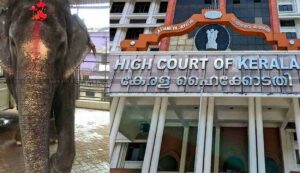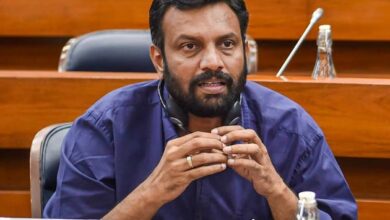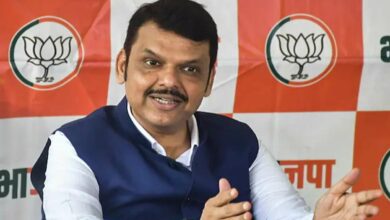Management committee: The two-century-old festival and celebration of the state’s rich heritage will “come to a standstill” if the high court guidelines are implemented
The two main organizers of the renowned “Thrissur Pooram,” Thiruvambady and Paramekkavu Devaswoms, have petitioned the Supreme Court to overturn the Kerala High Court’s rules on the elephant procession.

According to the management committee, the two-century-old festival and celebration of the state’s rich legacy would come to a “grinding halt” if the High Court’s rules are followed.
On November 13 and 28, the High Court issued two decisions mandating the temples scrupulously follow the rules set down for the elephant procession.
The order said that two elephants must be at least three meters apart throughout the parade, that the elephant must be at least five meters away from the flambeau (fire pole) or any other fire source, that the elephant must be at least eight meters away from the people, and that there must be no percussion performance.
In the appeal against the High Court order, advocate Abhilash AR said, “The historic Thrissur Pooram comes to a grinding halt due to the spatial restriction imposed by the High Court, mandating a minimum distance of three meters between elephants, as the thousand-year-old venue, the Vadakkumnathan Temple, integral to Thrissur Pooram, cannot accommodate such constraints.”
It said, “This venue, with its traditional layout, has been the epicenter of the Pooram for centuries and the direction by the High Court disregards the significance of the historic and UNESCO recognised tradition.”
The petitioners, who included eight additional temples and two prominent Devaswoms, Paramekkavu and Thiruvambady, as the main organizers of the event, said that the High Court’s directions were too general and confusing, leading to last-minute uncertainty and disruption in the festival’s preparation.
Given the size of the celebration and the enormous throng of over 5 lakh people, it was challenging to carry out the orders demanding precise distances and crowd control measures.
In order to ensure the festival’s purity and seamless operation, the petitioners had to coordinate with other agencies, which put a great deal of strain on them to implement these directions in the allotted time.
Advocate Abhilash claimed that by prematurely relying on the Supreme Court’s ruling in the Sabarimala Temple case, the High Court had overreached itself and reached a decision that was not only at odds with the matter still pending resolution before the highest court, but also failed to acknowledge the deeply ingrained religious and cultural significance of the Thrissur Pooram celebrations.
Following a 2018 ruling that let women of all ages to enter Kerala’s Sabarimala temple, the Supreme Court in 2020 made the decision to investigate the extent and reach of the basic right to freedom of religion in relation to other rights of citizens.
The Devaswoms continued, “High Court’s conclusion disregards the fact that the parading of elephants has been an integral part of the religious traditions of the Devasoms for centuries, and its status as an essential religious practice cannot be arbitrarily denied based on a judgment whose findings are still under judicial scrutiny.”
The petitioners requested that the rulings from November 13 and November 28 be quashed. They also requested that the High Court guidelines be put on hold and that the State administration be instructed not to rely on these orders when creating any new regulations that may be necessary while the appeal is pending.





